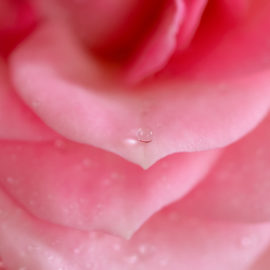With many using cosmetics on their skin on a daily basis, it is no surprise that more and more people are concerning themselves with formulations and ingredients. In fact, even non-active ingredients like preservatives in formulations are starting to concern consumers. This is where the trend of clean beauty comes in. Clean beauty is essentially the idea of consciously consuming cosmetic products that are made without any known or suspected toxic or harmful substances. With this idea, many are hoping to find preservative-free cosmetics to replace their current product to avoid any possible side effects.
Now, while all commercial cosmetic products should be tested by a health-regulating organization, many clean beauty enthusiasts are still concerned about certain ingredients, specifically traditional preservatives in products as they have been found to have certain side effects. Due to the rise in concern, many beauty manufacturers are pivoting to incorporating ingredients that have naturally preserving properties to do away with traditional preservatives. This integration of using natural preservatives for cosmetics can keep their products shelf-stable while minimizing possible side effects.
Content
Consumers Preservatives Commonly Found In Cosmetics
Preservatives in cosmetic formulations make a product shelf-stable and prevent bacteria from growing over time. Traditional preservatives like Parabens, Formaldehyde, and Isothiazolinones are found in many commercial products and have been shown to be effective in keeping products fresh and bacteria-free. However, while deemed safe by health regulating organizations, people’s perception of traditional preservatives has been on a steady decline.
According to studies, while traditional preservatives can prevent cosmetic products from going bad, they have several side effects that cause some concern to customers.
- Parabens
Paraben can be found in an array of sunscreens and hair care products. Though approved by the FDA as a preservative that prevents mold and bacteria to protect consumers, a certain amount of Parabens have been found to potentially disrupt hormone levels and the endocrine systems’ natural state. - Formaldehyde
Like Parabens, formaldehyde is used to prevent bacteria growth and can help prolong shelf-life. However, Formaldehyde has caused some people to develop rashes or skin allergies when included in cosmetic formulas. Additionally, it has been named a possible carcinogenic by the National Toxicology Program in the United States. - Isothiazolinones
While considered an anti-bacterial and anti-fungal substance, Isothiazolinones in cosmetic products have been linked to the development of dermatitis.
Reformulating with Natural Preservatives for Cosmetics
Though there are side effects with traditional formulations containing preservative chemicals, preventing bacteria and fungus are critical in maintaining the freshness and effectiveness of a cosmetic product. That is why many manufacturers and brands are switching to ingredients and formulations that make use of components with naturally anti-bacterial, anti-fungal, or anti-moisture. This keeps products from any bacteria growth and prolongs shelf-life while being less likely to cause any type of reaction in consumers.
Reducing Bacteria with Natural Ingredients
For bacteria to grow anywhere, a certain level of water and moisture is required for them to thrive and multiply. To keep this from happening, natural preservatives for cosmetics are often made of plant-based materials that limit water activity or moisture production within a certain product. With this limitation of moisture production, cosmetic products can have a preservative-free formulation that will be long-lasting, and free of possible risks traditional preservatives pose to its consumer on a daily basis.
Which Natural Ingredients Preservation Qualities?
- Pentylene Glycol
Pentylene Glycol is a compound that is derived from corncob or bagasse that has been found to be a great preservative in cosmetics. The compound has properties that prevent water activity making it antimicrobial. Additionally, products that opt to use pentylene glycol have been shown to be well tolerated by people suffering from skin sensitivity and issues like rosacea. - Levulinic Acid
Leuvulinic Acid is known to be a great natural preservative as it helps maintain the pH balance of both active and non-active ingredients found within a cosmetic formulation. It also directly benefits the appearance of skin as it has been found that Levulinic acid can help soften skin when applied. It is similarly derived from sugarcane bagasse and obtained by the process of hydrolysis and distillation. - Glyceryl Caprylate
Glyceryl Caprylate can be derived from many different plants such as coconut, palm kernel, or rapeseed oils making it one of the most accessible natural preservatives for cosmetics. Similar to the other two natural preservatives in this list, glyceryl caprylate aids in keeping bacteria growth at bay. This compound is also a well-known emollient that keeps cosmetic formulations homogamous for longer periods of time and prevents them from separating.
Preserve Your Beauty the natural way with Provital
With an abundance of ingredients that can serve as natural preservatives for cosmetics and preserve the freshness of a product, there is no need for consumers to rely on traditional preservatives to ensure the quality and shelf-life of some of their cosmetics. While traditional preservatives do work and are safe at the adequate conditions established by regulating cosmetic organizations, consumers are now looking for more natural and side-effect-free ingredients when choosing products they will use on a day-to-day basis.
Knowing how important antibacterial ingredients are in shelf-stable formulations, Provital is constantly working on the development of active ingredients that are preservative-free or contain natural ingredients with preservation qualities. To illustrate, we can look at the newly released CareActive™ called Altheostem™ Making use of Pentylene Glycol, Levulinic Acid, and Glyceryl Caprylate to preserve the freshness and potency of their product, Provital offers consumers a high-quality well-aging product without any of the traditional preservatives that are commonly perceived as harmful.
No comments yet
There are no comments on this post yet.





Leave a comment